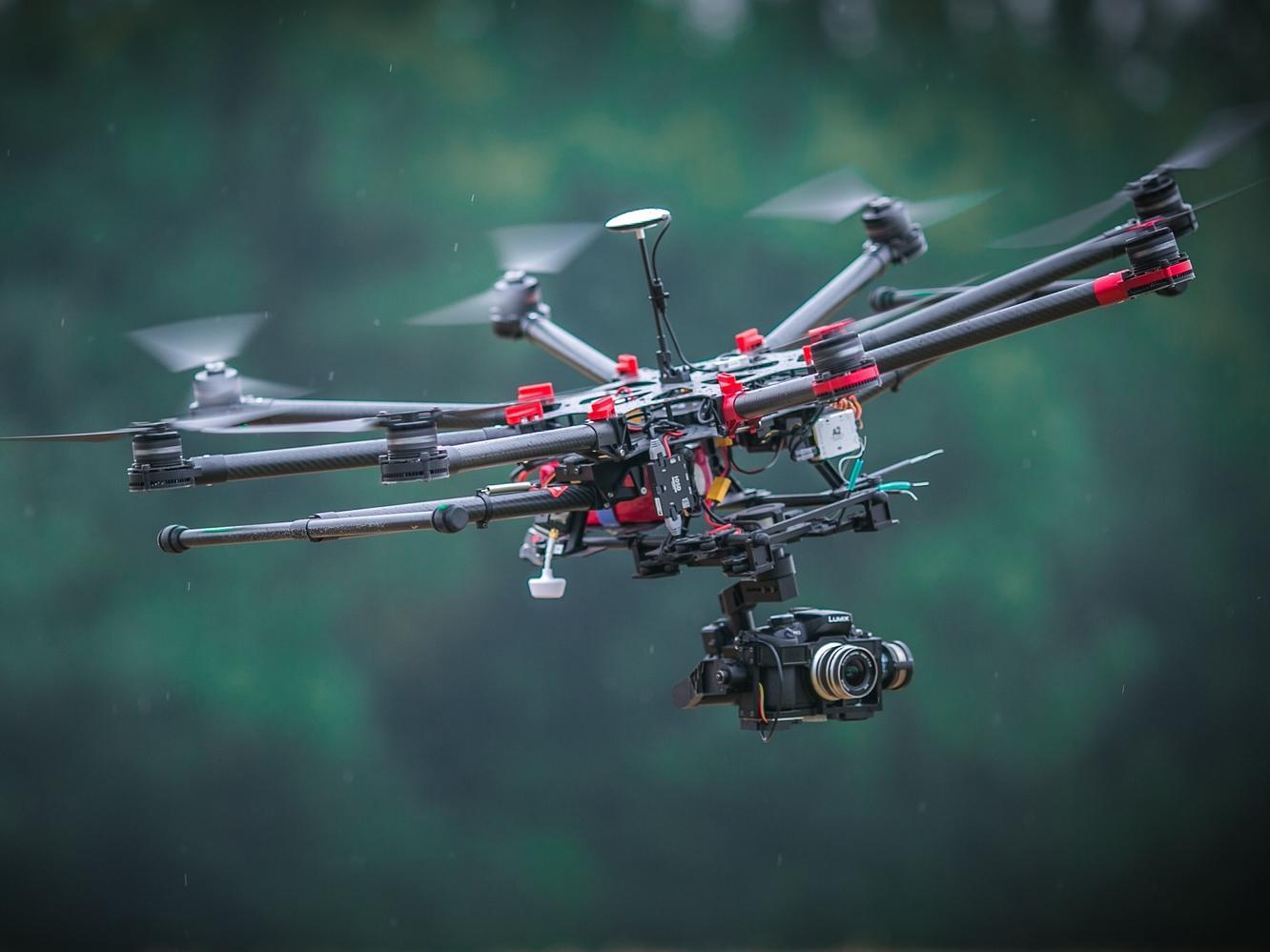
Brian Sims
Editor

Brian Sims
Editor
THE GOVERNMENT has been presented with a “landmark national strategy” for drone technology across land, sea and air, which is designed to “rapidly, safely and efficiently” accelerate growth by capitalising on an industry estimated to be worth over £45 billion to the UK alone by 2030.

The White Paper, entitled ‘A National Strategy for Drones Across Land, Sea and Air’, was submitted to the Government by the Drone Delivery Group, itself an independent collaboration of over 400 leading industry experts, commentators and stakeholders. Extensive support was received during the consultation period.
In essence, the White Paper unveils a strategy for the UK Government to facilitate the safe and secure adoption of autonomous drone technology right across the UK, potentially adding billions of pounds to the economy in the process and creating hundreds of thousands of new jobs.
One of the key concerns driving the need for the White Paper is the perceived requirement to address the current “lack of harmonisation” involving the application of regulations and industry standards between air, land and maritime-focused drones.
In his detailed review of the Operational Delivery Committee’s work centred on compiling the White Paper, Robert Garbett (chair of the Senior Advisory Board of the Drone Delivery Group) stated: “For hundreds of years, it has been widely accepted that traditional forms of transport would not dramatically evolve past their original purpose, with aircraft flying in the sky, ships sailing on seas and cars driving on roads. With the exciting potential of the drone industry, this is now no longer the case. Drones have created a paradigm shift which requires an evolution in terms of the way in which the UK regulates in this area. We need to avoid stifling an opportunity for UK plc, which could force the majority of drone business overseas.”
Garbett added: “We are calling on the Government to lay the foundations for our industry to flourish and, in doing so, lead the world when it comes to this remarkable technology. We have set out a national strategy to develop a harmonised and co-ordinated approach to standards and regulations across land, sea and air in order to realise the benefits of that for generations to come.”
Autonomous vehicles
Industry experts now agree it’s inevitable that autonomous or remotely piloted drones will form an integral part of the global economy, helping to shape a cleaner and more prosperous economic outlook.
However, there is currently still an urgent need for strong support and acknowledgement within Government for a harmonised approach to the regulation and standardisation of drones across land, sea and air in the UK.
John Haffenden, CEO of the Drone Delivery Group, commented: “As a not-for-profit organisation, we’ve focused our work on providing strategic advice to the Government on all-domain drone operations. Our aim is to maximise the benefit of drones to society, build a strong drone industry and ensure the UK captures the obvious benefits this will bring to our economy.”
Further, Haffenden noted: “The White Paper tackles how better to harmonise our approach to regulations and standards across land, sea and air in preparation for the imminent arrival of digitally operated autonomous drones in all environments. Without a solid strategy, operational chaos and reduced safety and data security will be the end result in what would continue to be a predominantly manned transport environment.”
According to Haffenden, the work of the Operational Delivery Committee of the Drone Delivery Group, headed by chair Fred Harbottle and involving many industry experts, must be commended for its “robust approach” to this issue.
Revised forecast
PwC1 recently revised its forecast for the economic benefit of drone technology, estimating it at £45 billion in contributions and £22 billion in net savings to UK plc by 2030. That’s equivalent to 1.6% of projected GDP. That estimate focuses solely on the use of drones in the air. “Consider land, maritime and air drones together,” asserted Garbett, “and you have a huge growth opportunity which is ready to be taken forward now.”
Drone technology can also reduce carbon emissions by an estimated 2.4 million tonnes, but none of this will be possible unless the UK changes the way in which it regulates drones across land, sea and air. Garbett is adamant that safety and the security of data are the main priorities.
“It’s vital,” concluded Garbett, “that the Government acts now to firmly establish the UK as an industry leader in the realm of drone technology.”
*The White Paper entitled ‘A National Strategy for Drones Across Land, Sea and Air’ – along with a trio of associated research papers supporting its recommendations – is available to read in full online
**Formed in November 2018, the key objective of the Drone Delivery Group is to arrive at a UK industry-supported solution to Beyond Visual Line of Sight, Vertical Take-Off and Landing and UAS Traffic Management. The desire is for a recommended approach to building the necessary framework that then enables the development of the industry and the evolution of UK airspace management for UAVs and hybrid drones. The Government can then “confidently support” this as a workable solution and enable safe and secure commercial drone flights to become a reality in the UK’s skies.
Reference
1www.pwc.co.uk/issues/intelligent-digital/the-impact-of-drones-on-the-uk-economy.html
Dorset House
64 High Street
East Grinstead
RH19 3DE
UNITED KINGDOM
01342 31 4300